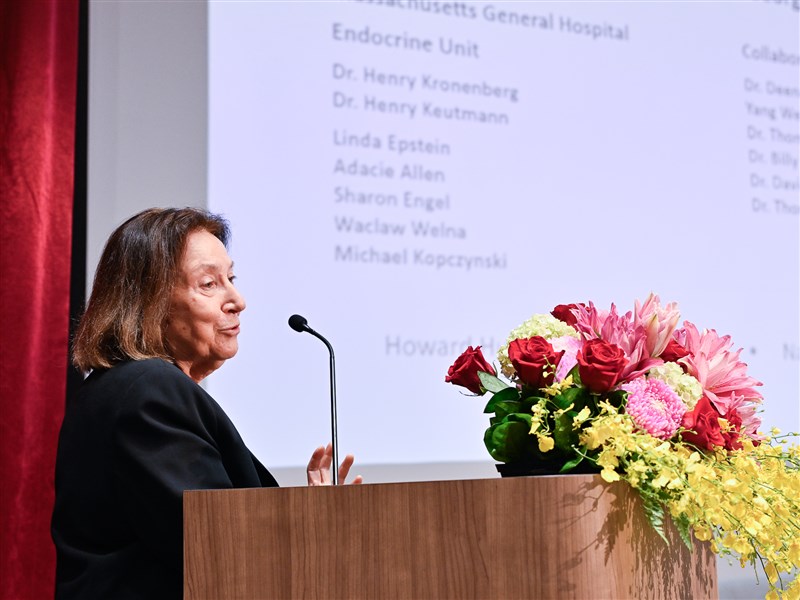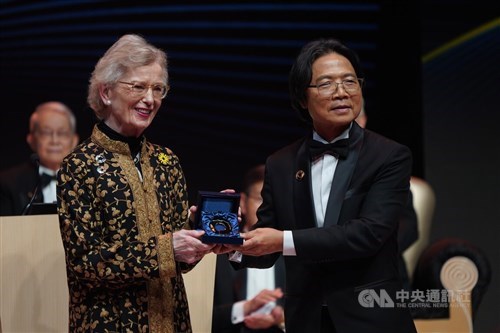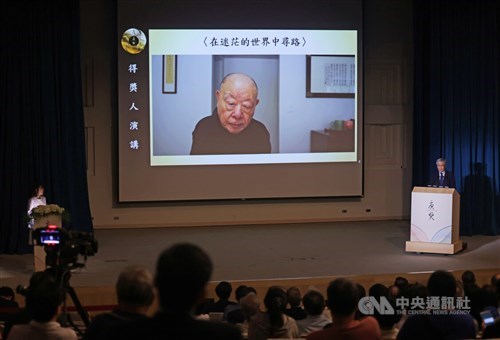TANG PRIZE / Historian shares research into ancient Chinese myth at Tang Prize forum
09/30/2024 01:52 PM
Renowned Taiwanese-American historian Hsu Cho-yun (許倬雲) on Monday said his work regarding the ancient Chinese myth Da Yu (大禹) was a successful example of integrating social science methodologies into historical research that helped him win the 2024 Tang Prize in Sinology.
(Full text of the story is now in CNA English news archive. To view the full story, you will need to be a subscribed member of the CNA archive. To subscribe, please read here.)
More in TANG PRIZE
-
![Drugs treating diabetes, obesity can do more: Tang Prize laureates]() Drugs treating diabetes, obesity can do more: Tang Prize laureatesSvetlana Mojsov and Jens Juul Holst, two of the laureates of the 2024 Tang Prize in Biopharmaceutical Science, said at a forum in Taichung on Tuesday that the GLP-1-based drugs their research spawned could go beyond managing diabetes and obesity.10/01/2024 08:52 PM
Drugs treating diabetes, obesity can do more: Tang Prize laureatesSvetlana Mojsov and Jens Juul Holst, two of the laureates of the 2024 Tang Prize in Biopharmaceutical Science, said at a forum in Taichung on Tuesday that the GLP-1-based drugs their research spawned could go beyond managing diabetes and obesity.10/01/2024 08:52 PM -
![Tang Prize winner lauds Taiwan implementation of human rights covenants]() Tang Prize winner lauds Taiwan implementation of human rights covenantsFormer Irish President Mary Robinson on Monday praised Taiwan's efforts to incorporate international covenants on human rights into its domestic law despite not being a signatory.09/30/2024 08:58 PM
Tang Prize winner lauds Taiwan implementation of human rights covenantsFormer Irish President Mary Robinson on Monday praised Taiwan's efforts to incorporate international covenants on human rights into its domestic law despite not being a signatory.09/30/2024 08:58 PM -
![Tang Prize Sinology laureate Hsu Cho-yun lauds Chinese culture values]() Tang Prize Sinology laureate Hsu Cho-yun lauds Chinese culture valuesTaiwanese-American historian Hsu Cho-yun (許倬雲), the latest Tang Prize Sinology laureate, highlighted Chinese culture as a source of inspiration for the world, saying they are worth referencing to tackle the current global challenges.09/28/2024 10:55 PM
Tang Prize Sinology laureate Hsu Cho-yun lauds Chinese culture valuesTaiwanese-American historian Hsu Cho-yun (許倬雲), the latest Tang Prize Sinology laureate, highlighted Chinese culture as a source of inspiration for the world, saying they are worth referencing to tackle the current global challenges.09/28/2024 10:55 PM
Latest
-
Society
Nantou forest fire contained after 7 days; cause under investigation
02/22/2026 01:39 PM -
Culture
Director Tsou Shih-ching challenges gender norms in 'Left-Handed Girl'
02/22/2026 11:04 AM -
Society
Taiwan headline news
02/22/2026 09:43 AM -
Society
Highs of 25-30°C and sun forecast for Taiwan Sunday
02/21/2026 07:22 PM -
Science & Tech
Taiwanese experts see model for 'sovereign AI' development in India
02/21/2026 06:18 PM


